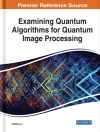Provide evidence-based answers that can be measured and relied upon by your business. Database administrators will be able to make sound architectural decisions in a fast-changing landscape of virtualized servers and container-based solutions based on the empirical method presented in this book for answering “what if” questions about database performance.
Today’s database administrators face numerous questions such as:
- What if we consolidate databases using multitenant features?
- What if we virtualize database servers as Docker containers?
- What if we deploy the latest in NVMe flash disks to speed up IO access?
- Do features such as compression, partitioning, and in-memory OLTP earn back their price?
- What if we move our databases to the cloud?
As an administrator, do you know the answers or even how to test the assumptions?
Database Benchmarking and Stress Testing introduces you to database benchmarking using industry-standard test suites such as the TCP series of benchmarks, which are the same benchmarks that vendors rely upon. You’ll learn to run these industry-standard benchmarks and collect results to use in answering questions about the performance impact of architectural changes, technology changes, and even down to the brand of database software. You’ll learn to measure performance and predict the specific impact of changes to your environment. You’ll know the limitations of the benchmarks and the crucial difference between benchmarking and workload capture/reply.
This book teaches you how to create empirical evidence in support of business and technology decisions. It’s about not guessing when you should be measuring. Empirical testing is scientific testing that delivers measurable results. Begin with a hypothesis about the impact of a possible architecture or technology change. Then run the appropriate benchmarks to gather data and predict whether the change you’re exploring will be beneficial, and by what order of magnitude. Stop guessing. Start measuring. Let
Database Benchmarking and Stress Testing show the way.
What You’ll Learn
- Understand the industry-standard database benchmarks, and when each is best used
- Prepare for a database benchmarking effort so reliable results can be achieved
- Perform database benchmarking for consolidation, virtualization, and cloud projects
- Recognize and avoid common mistakes in benchmarking database performance
- Measure and interpret results in a rational, concise manner for reliable comparisons
- Choose and provide advice on benchmarking tools based on their pros and cons
Who This Book Is For
Database administrators and professionals responsible for advising on architectural decisions such as whether to use cloud-based services, whether to consolidate and containerize, and who must make recommendations on storage or any other technology that impacts database performance
Mục lục
1. Benchmarking Basics.- 2. Industry Standard Benchmarks.- 3. Benchmarking Tools.- 4. Benchmarking Preparation.- 5. Benchmarking Mistakes.- 6. Benchmarking Hardware Options.- 7. Benchmarking Software Options.- 8. Benchmarking for Consolidation.- 9. Benchmarking for Virtualization.- 10. Benchmarking for Public Cloud.- 11. Workload Capture and Replay.- 12. Database Stress Testing.
Giới thiệu về tác giả
Bert Scalzo is an Oracle ACE, blogger, author, speaker, and database technology consultant. He has BS, MS, and Ph D degrees in computer science, and an MBA, and has worked for over 30 years with all major relational databases, including Oracle, SQL Server, DB2 LUW, Sybase, My SQL, and Postgre SQL. Bert has worked for several of those database vendors. He has been a key contributor for many popular database tools used by millions of people worldwide, including TOAD, Toad Data Modeler, ERwin, ER/Studio, DBArtisan, Aqua Data Studio, and Benchmark Factory. Bert has presented at numerous database conferences and user groups, including SQL Saturday, SQL PAAS, Oracle Open World, DOUG, ODTUG, IOUG, OAUG, RMOUG, and many others. His areas of interest include data modeling, database benchmarking, database tuning and optimization, ‘star schema’ data warehouses, Linux and VMware. Bert has written for Oracle Technology Network (OTN), Oracle Magazine, Oracle Informant, PC Week (e Week), Dell Power Solutions Magazine, The LINUX Journal, LINUX.com, Oracle FAQ, and Toad World. He has written an extensive collection of books on database topics, focusing mainly on TOAD, data warehousing, database benchmarking, and basic introductions to mainstream databases.












